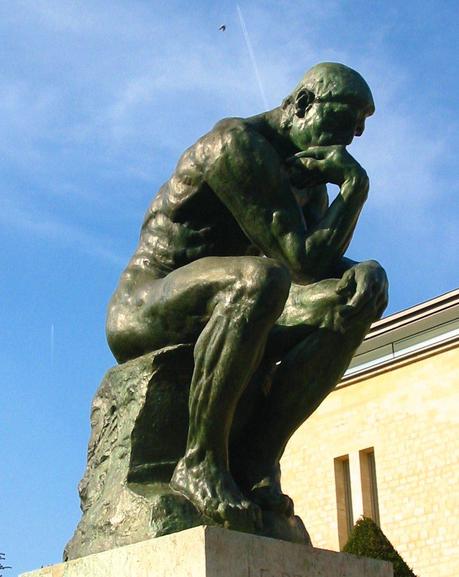
Rodin's The Thinker
Baxter Magolda (1992) describes four stages of knowing. The first one is the stage of Absolute Knowing. When students are in this stage, they think that there is only one right answer. When presented with a question with no straight answer, they get insecure. These students view learning as simply listening and absorbing everything the teacher says. They expect assessment to be about reproducing what they have acquired.
This is the stage that most of my students are in. When confronted with an open-ended question of which the answer is not so straight forward, they often ask me for help because it makes them insecure. It is not because they don’t get the subject matter, but because they are not used to giving an answer and then explaining themselves. After discussing such a question in class, students often exclaim: “So, what should the answer be?!”
So, this is what I’m focusing on during my social studies lessons. I keep repeating that the answer itself can’t be wrong, if they are able to argue what made them give that particular answer to that particular question. I explain to them that this method is comparable to the method used in maths, where it is not enough to write down the solution to a problem but they have to provide the teacher with the calculations as well to give the teacher some insight in their thought processes. I challenge them to class discussions.
I would really like to get my students to the Transitional Stage by the end of this year. In this stage, students accept the fact that there isn’t always a straight forward answer and there can be uncertainty about knowing things. They realize that they need to understand what they learn to be able to apply it.
This will pave the way for them to hopefully enter the Independent Knowing stage. What really excites me about this stage is that they start to view peers as valuable contributors to their own knowledge. Students realize that everyone has their own opinions and beliefs and start to form their own.
I don’t think everyone will eventually end up in the Contextual Knowing stage. In which people realize that they need to support their opinions and beliefs with evidence. This is very much a stage of academic thinking.
Baxter Magolda, M. B. (1992). Knowing and reasoning in college: Gender-related patterns in undergraduates’ intellectual development. San Francisco: Jossey-Bass.
